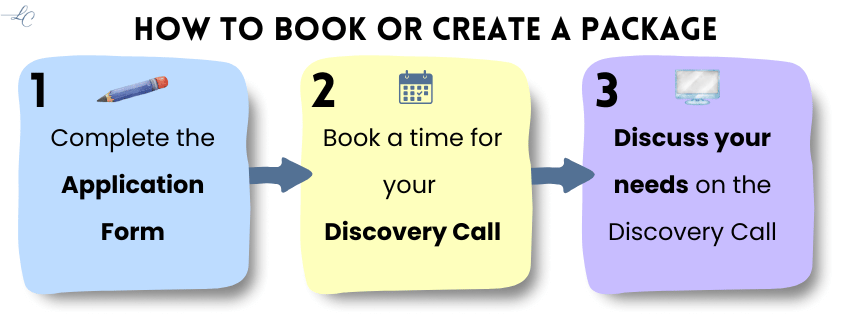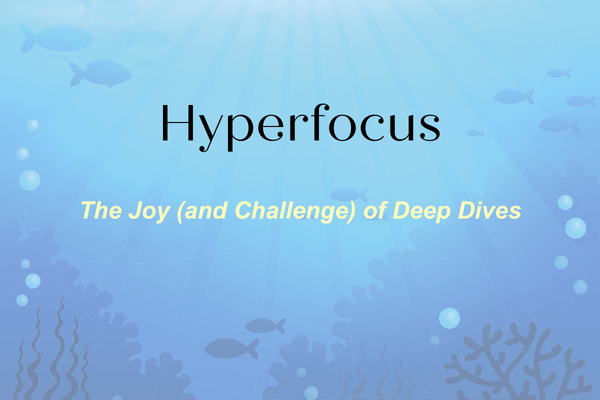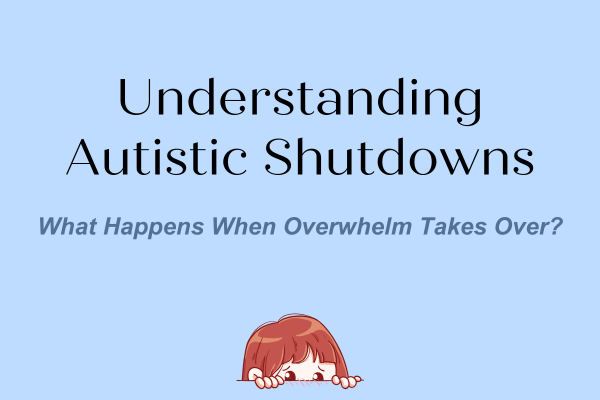
Late-Identified Neurodiversity – Rediscovering Myself
Late-Identified Neurodiversity = Internal University
Figuring out that I’m neurodiverse in my mid-50s certainly qualifies as late-identified neurodiversity!
I’ve always known — and embraced — that I’m different. But it’s only recently that I’ve begun to understand the full scope of my neurodiversity. I may be neurodiverse in multiple ways.
I’ve always known I was an introvert, and that felt like part of my neurodiversity. But discovering that I’m also autistic?
That part is new.
Looking Back Through a Neurodiverse Lens
With the insight I’m gaining now, I can see autism running through my life like a thread — sometimes fine and golden, sometimes tangled.
As a child, I loved solitude. I’d read science books and do experiments, learn to knit and crochet from crafting guides, and explore the vivid, layered world inside me.
When I did venture out, I saw things that weren’t right. Even at 7 or 8, I was campaigning to protect animals and the environment — creating petitions, going door to door to collect signatures, and sending them to the government.
I also had what my parents called “tantrums” — which meant being sent to my room (blessed solitude!). Now I understand these were likely meltdowns. The world overwhelmed me, and there was little awareness of autism back then.
Interestingly, my dad self-diagnosed as “mildly autistic.” It never quite landed with me — but he made me feel normal in a way no one else did.
Masking… and the Cost
Masking is the art of hiding your neurodiverse traits to fit into the neurotypical world.
Given I’ve gotten this far in life with only about four people recognising I might be neurodiverse – I’m pretty good at it!
My mission now is to gently unpick the mask — to understand when and how I mask, and most importantly, the toll it takes on my energy.
But because masking has become so automatic, it’s difficult to spot.
One video on YouTube helped illuminate this for me — I’ll share it below. I’ve watched it several times, laughing out loud at how deeply I relate.
(Especially the “watching the movie” scene… oh my stars — that is so me. It’s probably why I adore The Detectorists.)
Watch it here:
What’s Beneath the Mask?
I’m still discovering that part.
I’ve taken a short pause from life — a reset — to tune into my own rhythms. I’m learning what I truly need, and what my limits are.
Here’s what I’ve uncovered so far:
🕊️ Making time for myself early in the day
🐶 More puppy time (play and cuddles!)
🌪️ Limiting time in environments that are intense or draining
🗓️ Structuring my days to reflect my needs — which are still evolving
🚫 Saying firm no’s to what feels soul-sapping
🌿 Spending more time in nature — restoring myself, and watching satin bowerbirds build their bowers
🍲 Eating in ways that support my body
💫 Welcoming in more of what I love
This journey of late-identified neurodiversity is not about labelling. It’s about liberation. About finally seeing myself with clarity, compassion, and care.
And maybe, just maybe, letting that mask fall away — one kind choice at a time.
Have you ever experienced a moment of self-discovery that changed the way you see your past?
I’d love to hear what helped you make sense of your difference — whether recently, or long ago.
Please feel welcome to share in the comments, or just sit with the question gently and see what it stirs.














